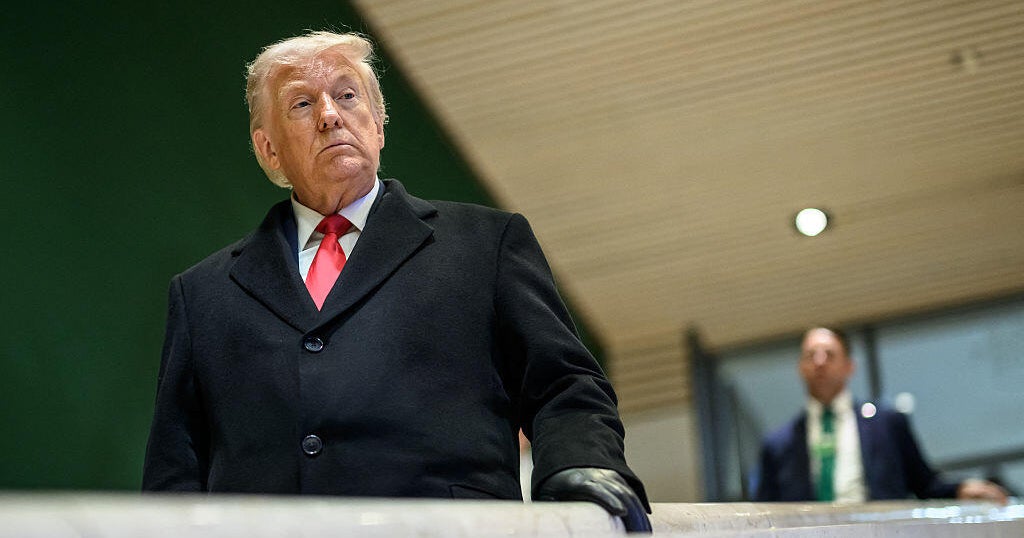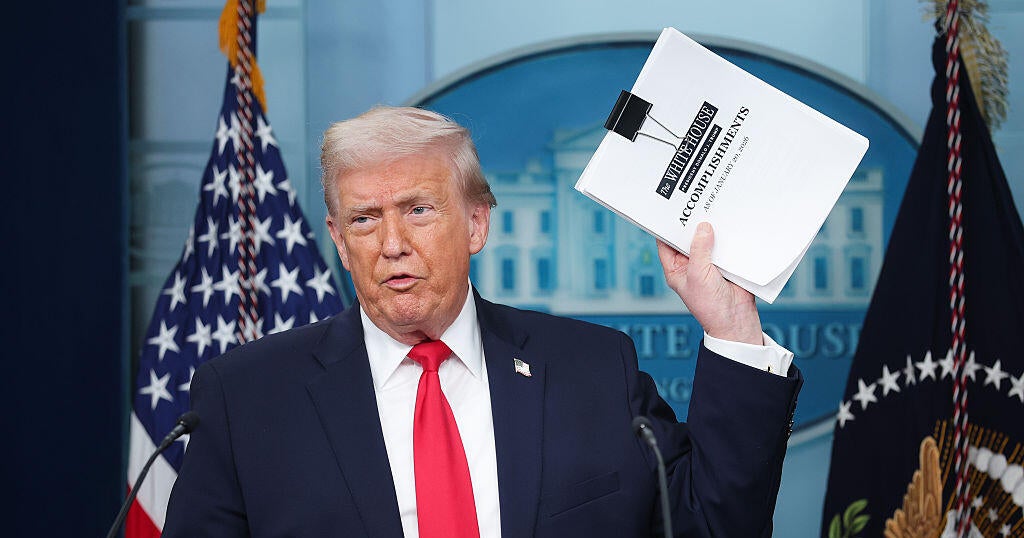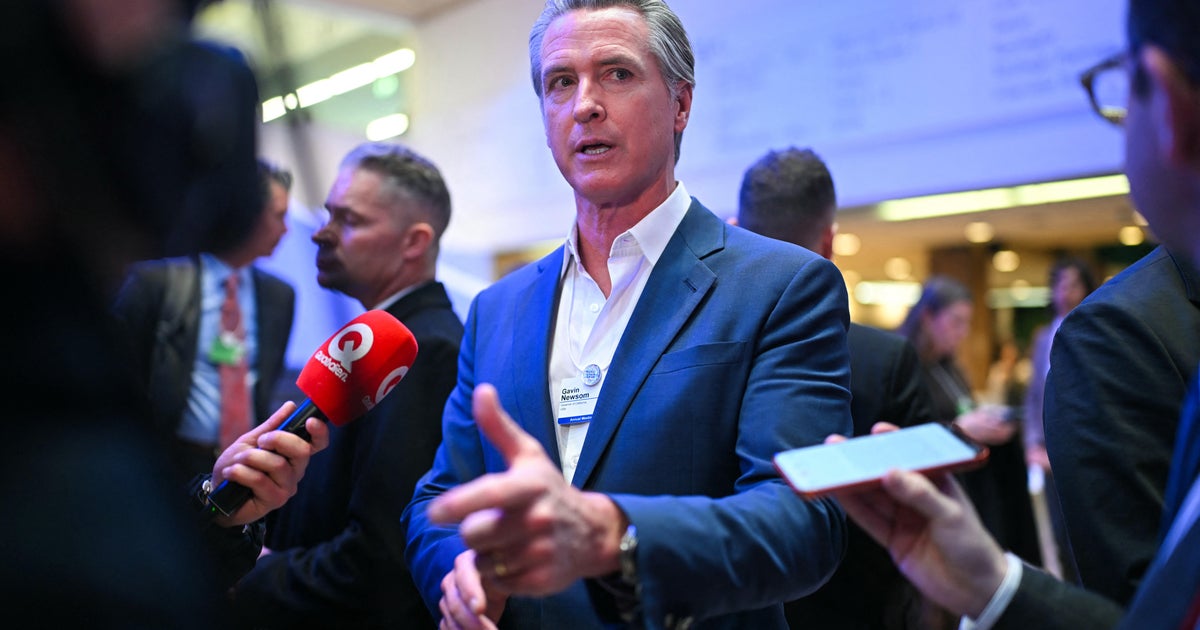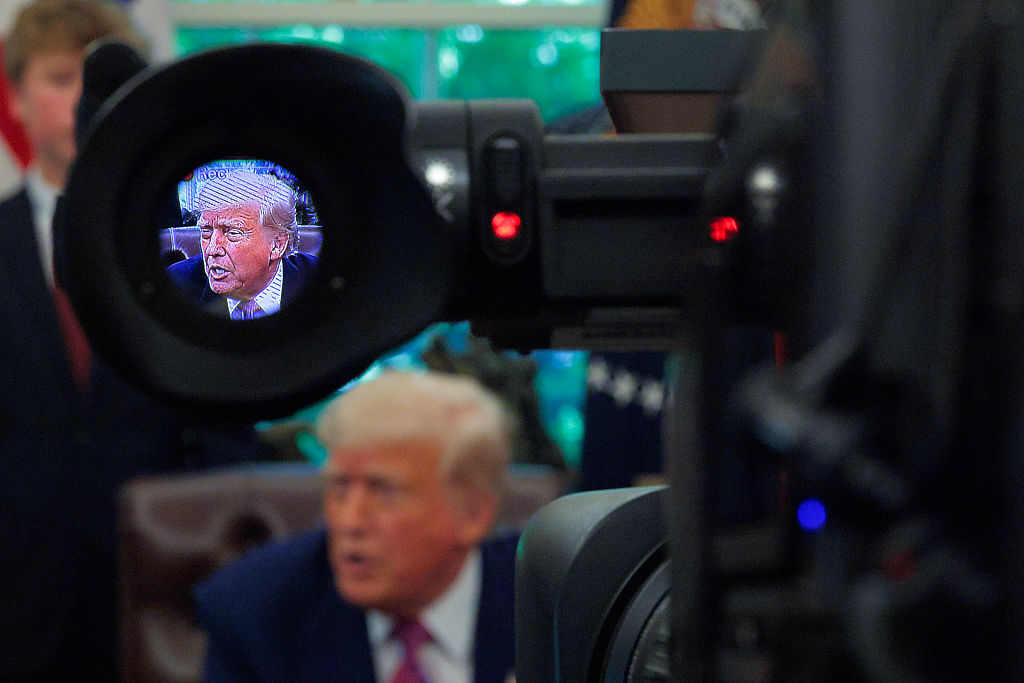8 key moments from the first public impeachment hearing
The House of Representatives' impeachment inquiry launched into public view on Wednesday as two pivotal witnesses testified in the probe's first open hearings.
The inquiry was spurred by a whistleblower's complaint about President Trump's dealings with Ukraine, including a call in July in which he urged Ukraine's president to investigate former Vice President Joe Biden and Biden's son, Hunter. On Wednesday, Bill Taylor, the highest-ranking U.S. official in Ukraine, and George Kent, a deputy assistant secretary at the State Department, took questions from lawmakers, detailing their knowledge of efforts by the president and other officials to pressure Ukraine.
Democratic Chairman Adam Schiff started the hearing by saying the answers to the questions at the heart of the inquiry "will affect not only the future of this presidency but the future of the presidency itself, and what kind of conduct or misconduct the American people may come to expect from their commander in chief."
California Representative Devin Nunes called the inquiry "a carefully orchestrated media smear campaign," a sentiment echoed by Republican lawmakers over the course of the day.
Here are some highlights from the hearing
1. Taylor says aide overheard Trump ask about "the investigations"
In his opening statement Wednesday, Taylor revealed new details about the events immediately following President Trump's July 25 call with the president of Ukraine. Taylor said a member of his staff told him last week about a phone call he overheard between U.S. Ambassador to the E.U. Gordon Sondland and Mr. Trump on July 26.
"Ambassador Sondland called President Trump and told him of his meetings in Kiev. The member of my staff could hear President Trump on the phone, asking Ambassador Sondland about 'the investigations.' Ambassador Sondland told President Trump that the Ukrainians were ready to move forward," Taylor said.
Taylor said he did not know about the conversation when he first testified in a closed hearing on October 22, but reported it to the State Department counsel and to the majority and minority counsel on the House Intelligence Committee once he learned of it.
An attorney for Sondland told CBS News he will respond to Taylor's statement when he testifies in an open hearing next week.
2. Taylor: Sondland said Trump cares more about investigations than Ukraine
"Following the call with President Trump, the member of my staff asked Ambassador Sondland what President Trump thought about Ukraine. Ambassador Sondland responded that President Trump cares more about the investigations of Biden, which Giuliani was pressing for," Taylor said in his opening statement.
Taylor told Schiff he interpreted that as Sondland saying the president cares more about securing investigations from Ukrainian President Volodymyr Zelensky than he does about U.S. foreign policy interests in Ukraine.
"I think you testified also that you had come to understand that the term 'investigations' was a term that Ambassador Sondland as well as Volker used to mean matters related to the 2016 elections and to the investigations of Burisma and the Bidens, is that correct?" Schiff asked.
"That is correct, Mr. Chairman," Taylor replied.
"I think you said that, after the call, when your staff asked Ambassador Sondland what President Trump thought of Ukraine, his response was that President Trump cares more about the investigations of Biden. Is that right?"
"And Burisma, yes sir," Taylor said.
Taylor said it's "hard to draw any direct lines" to determine whether lives were lost because of a delay in military aid to Ukraine, but insisted it's undeniable that the aid is necessary to counter Russian attacks, pointing out that Ukrainians lose their lives "every week."
3. Trump felt "wronged" by Ukrainians and thought they "owed" him
Taylor testified he believed Mr. Trump felt "wronged" by Ukrainians over the 2016 election, and that they "owed" him investigations into the Bidens and Burisma for supposed interference in the campaign. Taylor said he came to believe this following a discussion with the U.S. delegation to Zelensky's inauguration in May.
Taylor said investigations into the Bidens and Burisma "would have been to fix the wrong, exactly."
Ukrainians didn't owe the U.S. anything but gratitude, the diplomat acknowledged.
4. Jim Jordan's heated line of questioning
Republican Representative Jim Jordan, the newest member of the Intelligence Committee, turned heated Wednesday while questioning Taylor, railing against him for relying on secondhand information in portions of his testimony.
"You're their star witness. You're their first witness," Jordan said.
Taylor responded: "I don't consider myself a star witness for anything ... I'm not here to take one side or the other."
5. Taylor describes "regular" and "irregular" Ukraine policy channels
Taylor testified Wednesday there appeared to be two policy channels with respect to Ukraine -- one "regular" and one "highly irregular."
"When I arrived in Kiev, the actions of both the regular and the irregular channels of foreign policy appeared to serve the same goal -- a strong U.S.-Ukraine partnership," he said in his opening statement. "But it became clear to me by August that the channels had diverged in their objectives. As this occurred, I became increasingly concerned."
He later said, the "official foreign policy of the United States was undercut by the irregular efforts led by Mr. Giuliani."
6. Kent on Giuliani's "smear campaign"
Representative Andre Carson questioned Kent about former U.S. Ambassador to Ukraine Marie Yovanovitch, who was abruptly ousted from her position in the spring.
Kent said Rudy Giuliani's "smear campaign" against Yovanovitch "was ubiquitous in the spring of 2019 on Fox News and on the internet and Twittersphere."
Yovanovitch is set to testify publicly before the committee Friday.
7. Kent: "No factual basis" for allegations Ukraine interfered in election
Questioned by Democratic counsel, Kent testified there is "no factual basis" for allegations that Ukraine interfered in the 2016 election, something that has been floated by Trump allies.
The U.S. intelligence community concluded it was Russia that interfered in the election.
8. Schiff, Republicans clash over "facts not in evidence"
Schiff set off a confrontation with Republicans at the impeachment hearing after telling Taylor he should be "cautioned" about questions based on "facts not in evidence."





